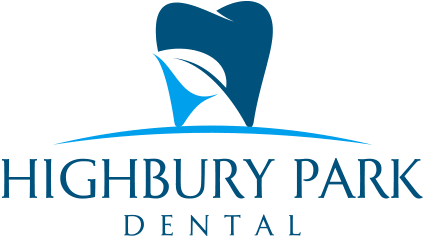Knowing Your Options for a Better Dental Experience
Dental anxiety is a very real fear. Many avoid the dentist completely out of fear, neglecting their oral health. This creates additional problems and makes matters far worse. Luckily, dentistry is not what it used to be. Many advancements have been made to ensure the experience if far more pleasant. Unfortunately, the stigma has remained.
In this article, we will get into many of the specifics of dental sedation, when it is used and the types of sedation that are available to help ensure that your experience is pain and anxiety-free.
What is Dental Sedation
In sedation dentistry, the dentist administers a drug before or during the dental procedure. General anesthesia renders the patient unconscious. There are multiple types of sedation available, with varying degrees of sedation.
The purpose of sedation is to address the severe anxiety that some face with respect to getting dental work done. For many, the pain or thought of it can cripple them, leading to avoidance of dental work, which, in turn, can lead to neglect and further damage. To the point where it is too late to intervene, and drastic measures must be taken.
When Is Sedation Used?
Sedation dentistry is used for people who have phobias related to dental procedures, have had a bad experience with dental work in the past, those who have sensitive oral nerves, a smaller mouth which becomes sore during dental work, those who have resistance to local anesthetic and for general anxiety disorder.
Any of these problems could warrant asking the question to your dentist. This procedure can help get patients through may types of dental work, such as root canals, tooth extractions, dental implants and more. It is typically not offered for regular dental cleanings, x-rays and other routine care. In extreme anxiety cases, it may be a viable option, however, it is not always recommended.
The Different Types of Sedation Available
There are different levels and degrees of sedation which can help you get through procedures. Below, we explore the different types of sedation and the effects they have, to better understand how they may be able to help you get through dental work.
Nitrous Oxide
Nitrous oxide is a gas that relaxes you during the procedure. It wears off relatively quickly, which means your dentist may allow you to drive yourself home after the appointment is complete.
Minimal to Moderate Oral Sedation
This type of sedation is a sedative taken in the form of a pill. Depending on the dosage, it can induce a low or moderate sedation. With moderate sedation, you won’t remember much of the procedure even though you are conscious. In some cases, patients become groggy to the point where they fall asleep. Most sedation dentistry practices require that the patient take the pill an hour before the procedure. This is a great option for those who fear needles and would prefer not to be injected.
IV Moderate Sedation
Intravenous sedation is the fastest working sedative. A needle can transfer the solution directly to your bloodstream, having almost instantaneous effects. The anesthesiologist will typically ask you to count backwards from 10. In most cases, you won’t be able to reach 1 before you’re asleep. This is typically the procedure used when a patient would like moderate to deep sedation.
Read More: INTRAVENOUS SEDATION DENTISTRY FAQS
Deep Sedation and General Anesthesia
General anesthesia and deep sedation is generally reserved for significant oral surgery or those who are resistant to other types of sedation. General anesthesia means the patient is completely unconscious. This type of sedation requires a stay in hospital or a specialized clinic where a nurse anesthetist or anesthesiologist is administering the sedative and monitoring your vital signs.
The Benefits of Sedation Dentistry
Many put off dental visits and work due to fear and anxiety around pain and the experience in general. Dental sedation is a common way to ease that anxiety and eliminate pain altogether during the procedure, allowing patients to rebuild their trust in dentistry and ease anxiety for the future. Exploring this option may be the best thing for your oral health, allowing you to intervene and prevent major problems from developing unnecessarily. Below, we run down the list of benefits that this option can offer you.
More Comfortable Treatments
This goes without saying. If you can’t feel or hear what’s happening while you’re getting work done that gives you tremendous anxiety, you will be far more comfortable getting the work done.
Overcome Your Dental Anxiety
Sedation can have serious positive benefits for those with anxiety around dentistry. It can help you overcome your fears and develop a much healthier mindset with respect to visiting a dentist and getting work done.
Fewer Appointments (Multiple Treatments at Once)
If you leave things long enough, things will get worse. This can lead to having to book multiple appointments to get work done. For someone with anxiety around visiting a dentist in the first place, you can see how multiple appointments would be very stressful and might lead to cancellations out of fear of going in the first place. Sedation can help by allowing your dentist to perform multiple procedures at once.
What are the Side Effects?
The side effects of sedation can include drowsiness, feelings of heaviness or sluggishness, loss of memory with respect to what took place during the procedure, slower reflexes, low blood pressure, headache and feeling sick.
Who is a Candidate for Sedation?
If going to the dentist makes you extremely anxious, dental work is usually painful for you, you’re affected by the smells and sounds of the dentist’s office, you have a strong gag reflex, you want to be partially sedated, or you require a very long procedure, you may be a good candidate for sedation.
Dental Sedation Can Transform Your Experience
Not many people are excited to go to the dentist, but most can tolerate the experience quite well. If your worries about dental work have you avoiding the dentist completely, know that there are options available to you out there that can get you through dental appointments with ease, stress and pain-free. Sedation can be all you need to keep you relaxed and calm during your procedure. Speak with our team to determine if sedation is all you might need to help you overcome your fears.

